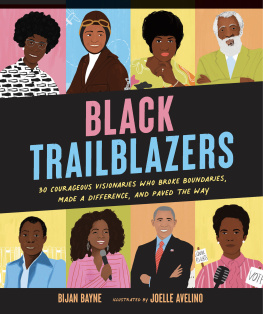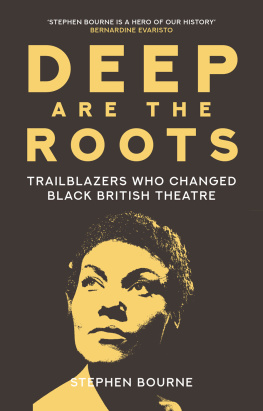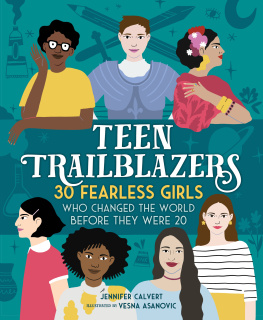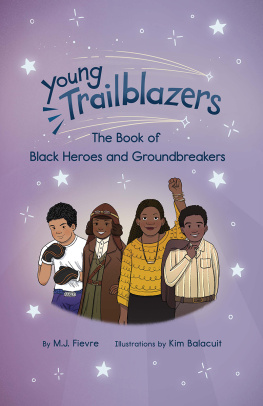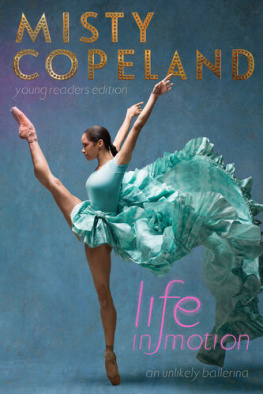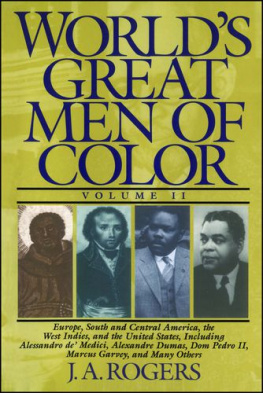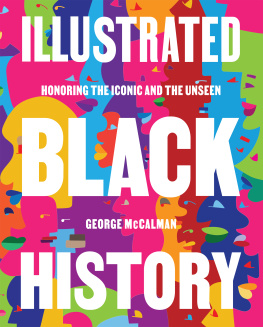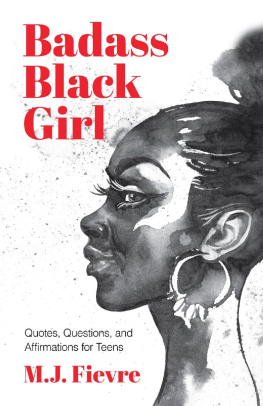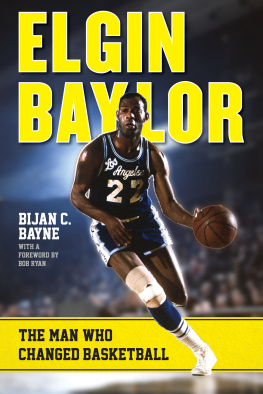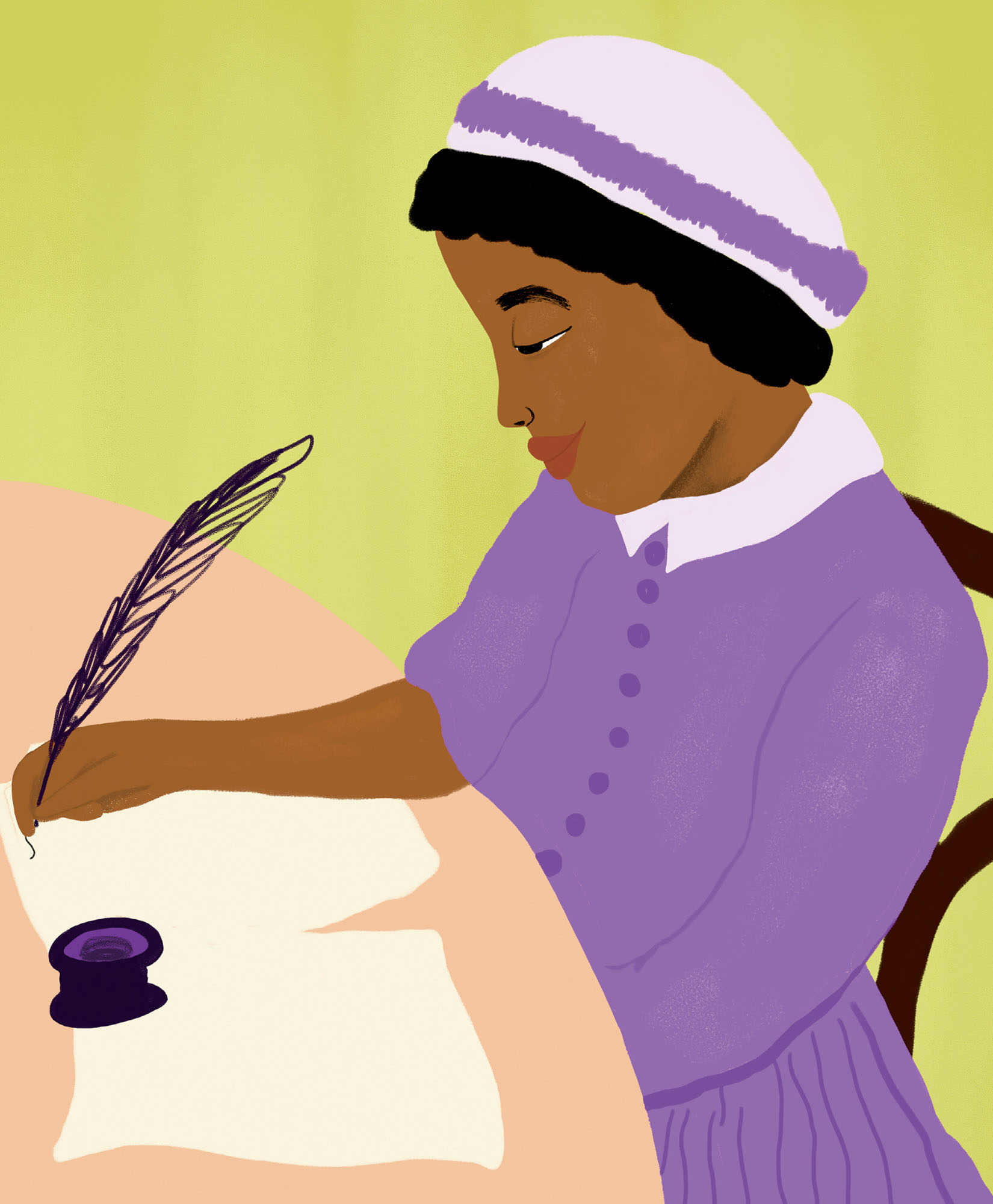BLACK TRAILBLAZERS copyright 2022 by Hollan Publishing. All rights reserved. No part of this book may be used or reproduced in any manner whatsoever without written permission except in the case of reprints in the context of reviews.
Andrews McMeel Publishing
a division of Andrews McMeel Universal
1130 Walnut Street, Kansas City, Missouri 64106
www.andrewsmcmeel.com
ISBN: 978-1-5248-7477-3
Library of Congress Control Number: 2022930758
Editor: Allison Adler
Art Director: Katie Jennings Campbell
Production Editor: Elizabeth A. Garcia
Production Manager: Julie Skalla
ATTENTION: SCHOOLS AND BUSINESSES
Andrews McMeel books are available at quantity discounts with bulk purchase for educational, business, or sales promotional use. For information, please e-mail the Andrews McMeel Publishing Special Sales Department: .
Introduction
Think of the world as you know it today, where astronauts travel to outer space, where science and medicine save and enrich lives, where culture is bold and vibrant, where technology is at your fingertips, and where regular citizens can become powerful voices for good. All this would not be possible without the unrelenting efforts of Black trailblazers throughout history.
A trailblazer is a person who comes to a rough patch in the forest with no obvious route forward, and instead of turning back around, they come up with a new idea, they rally others for help, or they devise a plan for how to create a new path forward. They blaze their own trail, which allows others to follow behind them. And when someone becomes a trailblazer, it can be in just about anythingfrom science and medicine, to freedom from injustice, to books and music, to confidence in oneself.
Take mathematician ., among many others, those freedoms might not be possible.
Changemakers throughout history take on many different forms, and its not always obvious who those people are. Even if someone doesnt call themselves an activist, that doesnt mean they arent making a difference. The actions of those who came first allow other people to continue the work of progress. made it clear that Black and Brown boys and girls can grow up to lead the world.
Some of these names are familiar, but so many of these important innovators have been written out of the story, when they are the story. Read on about these 30 Black Trailblazers, the inspiring pioneers whose indispensable work propelled the world forward and set the course of history.
- First published Black woman in the American colonies
- Personally invited to meet future president George Washington
T he woman we know as Phillis Wheatley was born with another name in West Africa, where a local chief sold her into slavery when she was just 7 or 8 years old. A slave trader then brought her to the American colonies in a ship with hundreds of other people he planned to sell. When she arrived in Boston on July 11, 1761, a wealthy man named John Wheatley bought the frightened young girl to work for his wife. They called her Phillis after the name of the slave ship that brought her to the colonies and Wheatley for the family she was forced to serve.
The Wheatley family took a special interest in Philliss education. Quickly recognizing her talents for language, they even assigned her housework to their other enslaved people so that she could focus on her studies. In many places, teaching an enslaved person to read was illegal. Phillis not only read, but she read Mr. Wheatleys own collection of famous writers. By the age of 12, she could read complex works in English, Greek, and Latin. Phillis especially loved to read classic poets like Homer and John Milton, whose works inspired her to write.
She published her first poem in a local paper when she was just 14 years old. By the time she turned 18, Phillis had 28 poems she hoped to print as a collection. The Wheatleys, who had been happy to show off their talented ward to friends and family, did their best to find a publisher. When no one in the colonies would consider the work of an enslaved person, they turned to their connections in England.
In 1773, Phillis accompanied Nathaniel Wheatley to London, where her work was already being celebrated. People were curious about the enslaved African girl who could write and recite so well. During her trip, she read for the mayor and secured the support of a wealthy countess, who helped Phillis publish her book that same year. Upon her return to Boston, the Wheatleys offered her something she longed for even more than publication. After 13 years of being owned by other people, Phillis was finally free.
Having her freedom didnt mean having it easy, though. Phillis still had to prove herself to people who didnt believe a Black girl who had been enslaved could have written so beautifully. At one point, a group of Boston politicians and doctors took it upon themselves to examine Phillis to see if she was legit.
The Write Stuff
Phillis often used her talents to write letters to famous men expressing her opinions and support. She wrote one of these powerful letters to Revolutionary War general (and future U.S. president) George Washington. The general, who was busy commanding all the colonial troops against the British, invited the author to meet him. In March of 1776, Phillis met General Washington in Cambridge, Massachusetts. Four months later, he led the colonies to win their independence from England.
(One of these examiners was John Hancock, who later became the first person to sign the Declaration of Independence.) Only when they were convinced Phillis was intelligent and well-spoken enough to have produced her work did they lend their statement of support to her book.
Today, there are high schools, YWCA buildings, college dormitories, and literary clubs named for Phillis. (Just imagine what a star she would have been on social media today.) But people continue to give more credit to Philliss supporters than to the writer herself. They say that, although she was enslaved, she was lucky to have had owners who recognized how bright she was. But Phillis would have been just as intelligent had she never been kidnapped. And she had to be a pretty incredible person and writer to impress kings, statesmen, and future presidents. Who knows what she might have accomplished if she had been allowed to live out her life in freedom.

